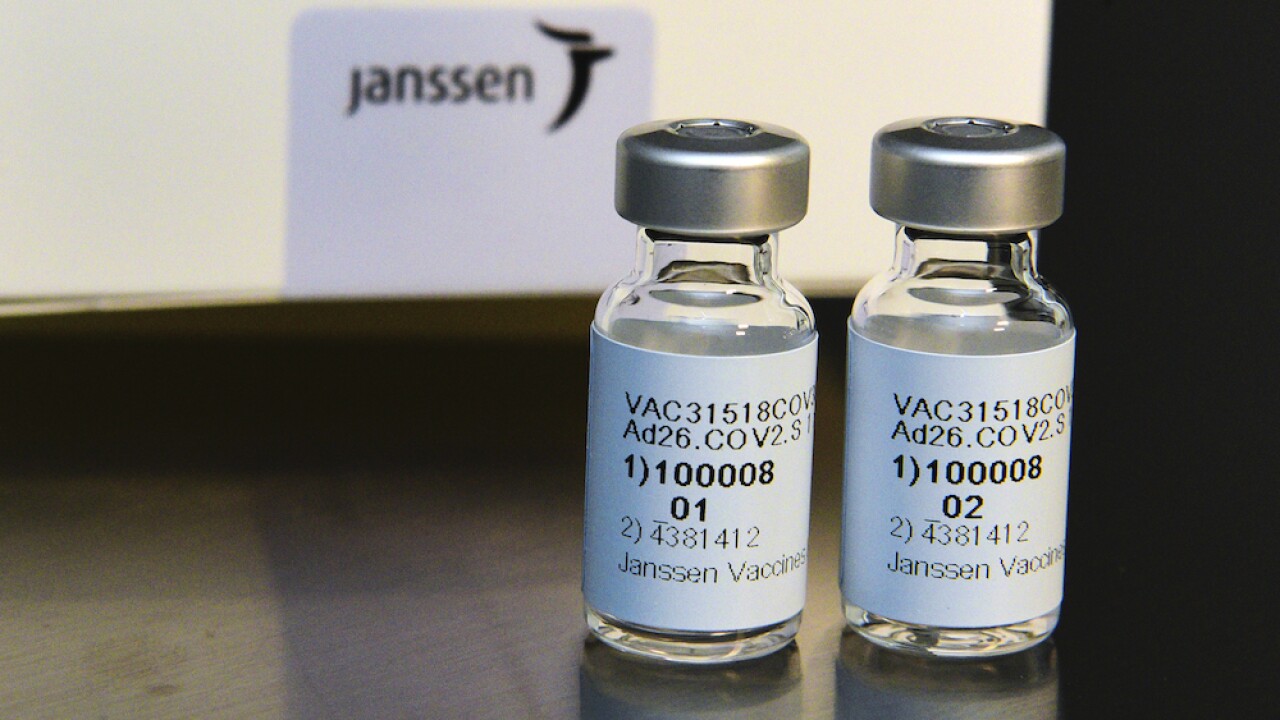WASHINGTON — The Food and Drug Administration is wrestling with how to decide when Americans should seek out a booster dose of the single-shot Johnson & Johnson COVID-19 vaccine.
Other manufacturers want to offer boosters six months after primary vaccination. But J&J proposed a range of times, from two months to six months.
In a review posted Wednesday, FDA scientists didn't reach a firm conclusion, citing shortcomings with J&J's data.
"Although not independently confirmed by FDA from datasets, summaries of the data suggest there may be a benefit in a second dose administered approximately 2 months after the primary dose, when compared to the efficacy seen in the pivotal study COV3001," researchers wrote in a 54-page document made public Wednesday.
According to CNBC, the report also indicated that a single dose of the J&J vaccine "still affords protection against severe COVID-19 disease and death in the United States."
On Thursday and Friday, an FDA advisory panel will recommend whether to back boosters of both the J&J and Moderna vaccines.
In documents released Tuesday, Moderna argued that a third dose of its vaccine was needed "six to eight months" after a second dose, The New York Times reports.
The FDA and CDC have already approved booster shots for the Pfizer COVID-19 vaccine for people aged 65 and older, for people with underlying medical conditions and for people who work essential jobs. The FDA says those Americans should seek out a Pfizer booster six months after their second dose.



